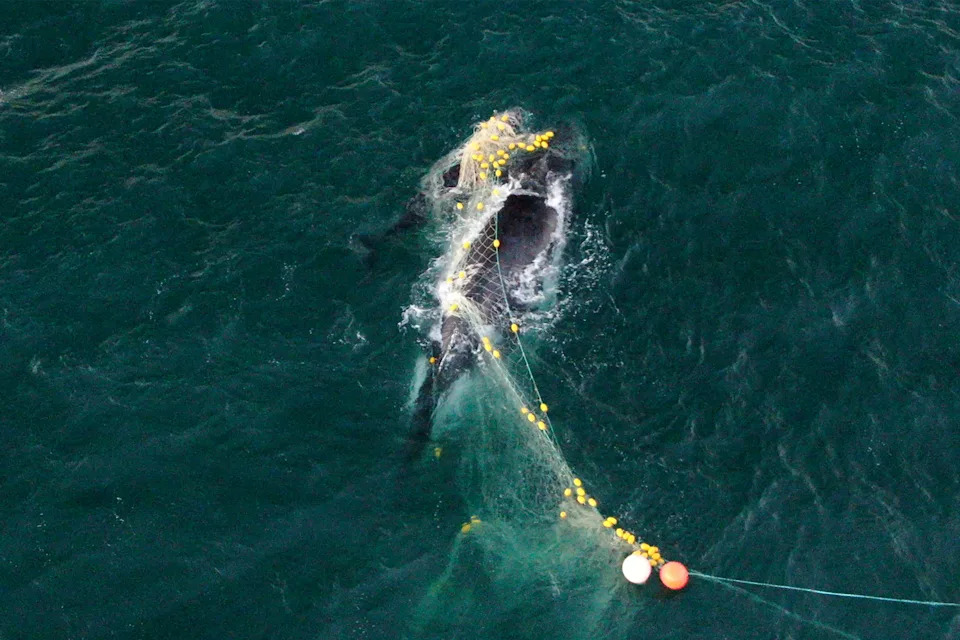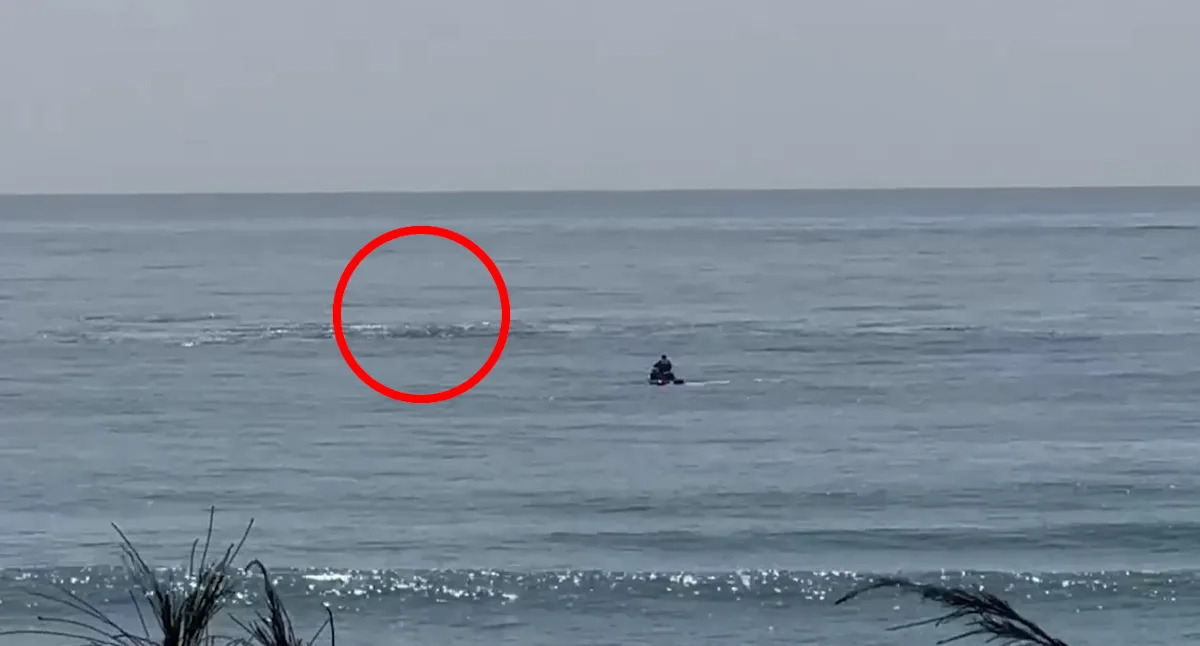As jet skis and boats scrambled to help a distressed whale off Australia’s east coast, the animal’s cries could be heard by beachgoers on the sand. Living in Queensland, sixteen-year-old Taylor Ladd-Hudson has witnessed dozens of humpbacks entangled in shark nets controversially set by the state government, but she describes the sound she heard this morning as “something that shook me to my core”.
“I’m really good at dealing with my emotions during entanglements, but I couldn’t hold back the tears. It was gut-wrenching and heart-shattering to hear the whale in so much distress and pain. It’s a sound I hope no one else has to hear in their life,” she told Yahoo News Australia.
The juvenile whale Taylor saw trapped on Friday was at Marcoola on the Sunshine Coast, a popular tourism area. It’s the fifth whale to be entangled in shark nets in three days, with mothers and calves also trapped at Noosa and Hervey Bay.
Will the whales survive their shark net ordeals?
The Department of Primary Industries (DPI), which is responsible for the state’s shark net program, said it received a call about the Marcoola incident at 8am, and the animal was “successfully released” at around 10am.
“Our teams were alerted to this incident by reports to the Shark Control Program hotline and we had crews on the scene very quickly. We thank everyone who contacted the hotline, enabling us to provide prompt assistance,” a spokesperson said.
Although all whales have been freed, it’s unknown whether they will survive in the long term. Earlier this week Griffith University whale expert Dr Olaf Meynecke told Yahoo News more research is needed to understand the impact of entanglement. “We don’t seem to be actually caring about the whales after we’re disentangling them,” he said.
The spike in entanglements has prompted a renewed call from conservationists to remove shark nets during the annual humpback migration.
Concern shark nets are damaging Australia’s tourism reputation
Envoy Foundation founder Andre Borell accused the Queensland government of being “behind the times”, warning that repeatedly ensnaring the whales that tourists come to watch is bad for Australia’s reputation. He advocates for replacing the nets with modern alternatives like drone surveillance. He would also like to see the government tag whales after they’re released to track whether they survive.
“We spend tens of millions of dollars trying to look great to international audiences, and undo so much of that work by broadcasting images of entangled whales on our coastline every year,” he said.
NSW was set to trial the removal of shark nets from some beaches, but that program was temporarily suspended following a fatal attack. Whether these devices actually deter sharks from the coastline is disputed.
Minister says human life must come first
The Crisafulli Government in Queensland has doubled down on them. In May, it announced a contentious plan to expand their use as part of an $88 million shark control program. Minister for Primary Industries Tony Perrett said the program would uphold the state’s “international tourism reputation as a safe place” to swim.
Responding to the situation on Friday, the Minister claimed nets and drumlines were “scientifically proven to be the most effective tool in protecting swimmers”.
He said the government’s plan also funds a Marine Animal Rescue Team, comprising 25 specialists who provide rapid response to any entanglement.
“The Crisafulli Government will always put the safety of people first which is why it has delivered the largest investment into shark management in the program’s history,” he told Yahoo in an email.

A mother and her calf became trapped in the Queensland government’s shark nets at Noosa earlier this week. Source: Taylor Ladd-Hudson/Sea Shepherd
Witness concerned for whales after watching them from beach
The state’s Department of Primary Industries (DPI) confirmed with Yahoo that it would be immediately replacing the damaged nets at Marcoola and Noosa.
“We remind the public that for their own safety, it is dangerous to approach or try to release whales trapped in nets,” it said.
As the southern whale migration has only just begun, Taylor expects to see more entanglements.
The memory of what she saw at Marcoola will take a long time to fade. And she fears the juvenile whale and its mother may not survive the perilous journey back to Antarctica because they’ve expended so much energy during the entanglement.
“The baby had become entangled, and the mum was swimming around and under the nets. She was really upset. You could also see another male escort swimming around the nets, really distressed,” she said.
“There were eight other … humpback whales in the vicinity. There were tail slaps, breaching, a lot of distressed behaviour.”
Love Australia’s weird and wonderful environment? 🐊🦘😳 Get our new newsletter showcasing the week’s best stories.


